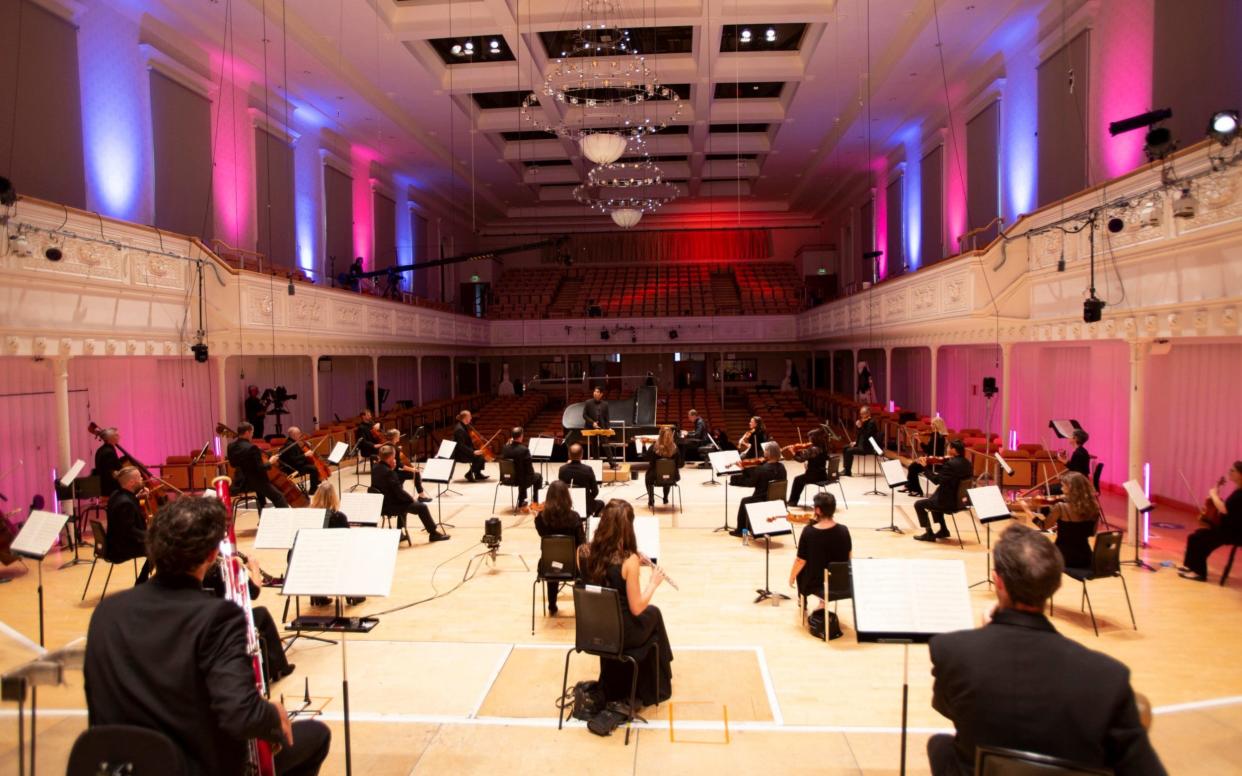Proms 2020: BBC Scottish Symphony Orchestra review: a brand-new piece about lockdown stirred the soul

Another Prom, another no-show. This time it was the conductor Thomas Dausgaard, who had to withdraw from last night’s Prom with the orchestra of which he’s Chief Conductor, the BBC Scottish Symphony Orchestra. Fortunately the orchestra’s young Associate Conductor Alpesh Chauhan was able to step in at the last minute. He led this concert with a combination of clarity and urgent but never over-bearing expressivity, leaving space for the music and musicians to breathe together, which orchestral players clearly warm to.
As for the programme, it offered a beautiful rarity, a brand-new piece commissioned by the Proms, and two utterly contrasting masterpieces. The rarity was the 1946 Lyric for Strings by George Walker, the African-American composer who died two years ago at the age of 96. This six-minute lament is an early piece, inspired partly by the death of his grandmother and partly by the devastation of the Second World War, and this performance revealed a piece of telling understatement, which drew expressive power from the way it touched on familiar compositions – Barber’s Adagio is a very distant cousin – but never came close enough to them to compromise its own very distinct personality.
The brand-new piece was by the 31-year-old Scottish composer Jay Capperauld. Entitled Circadian Rhythms (172 Days until Dawn), the piece traces a kind of darkness-to-dawn journey through a procession of 172 harmonies, one for each of the days between the start of lockdown and the completion of the pieces. That description sounds unpromisingly literal-minded but the music was anything but, unfolding in a way that was cogent yet full of surprise.
It began with the distant-thunder sound of cellists rapping their instruments, touched with a silvery gleam of string harmonics and sleigh-bells and horn-whoops. Pulses appeared and disappeared through the haze, suggesting the cycling of days and seasons. Eventually the piece found its way to a climax that had an interesting quality of delighted surprise, a feeling of “Look! We Have Come Through!”—the title of DH Lawrence’s 1917 poetry collection which came into my head at that very moment. Not many new pieces stir one’s imagination and memory in that way.
Of the two masterpieces, the one that came over most successfully was Beethoven’s Second Piano Concerto, the soloist Stephen Hough and the orchestra enjoying the music’s springtime vigour and comic “wrong” accents and occasional moments of tranced, visionary stillness. Richard Strauss’s Metamorphosen, his desperate lament for 23 solo strings, composed in the final months of the Second World War, wasn’t so successful. The music’s tangle of expressive lines ought to engender an agonised and ever-increasing expressivity, but on this occasion the tangle seemed effortful and unfocused. Or was it that the piece itself is over-extended and over-wrought, a fact which only a really great performance can disguise? Not the first time I found myself troubled by that thought.
Hear or watch this Prom for 30 days via the BBC iPlayer. The Proms continue until September 12, all broadcast live on BBC Radio 3 and on the iPlayer.

